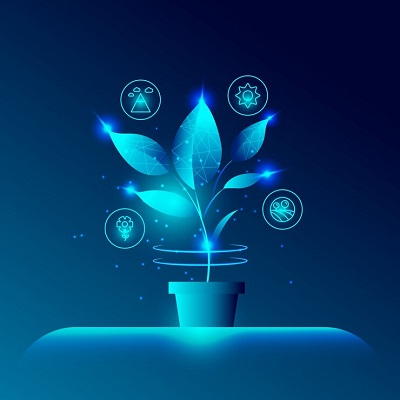Sustainable Landscaping: The Role of Smart Technology in Water Conservation
Sustainable landscaping is not just a trend; it’s a crucial step towards preserving our environment and conserving natural resources. One of the most significant challenges in sustainable landscaping is water conservation. With the increasing demand for water and the impact of climate change, it’s essential to find innovative solutions to reduce water usage in landscaping. This is where smart technology plays a pivotal role.
Smart technology, including smart irrigation systems, weather-based controllers, and soil moisture sensors, is transforming the way we approach water conservation in landscaping. These technologies are designed to optimize water usage, minimize waste, and promote healthier plant growth. Let’s explore the role of smart technology in sustainable landscaping and how it’s revolutionizing water conservation.
Smart Irrigation Systems: Traditional irrigation systems often lead to water wastage due to overwatering or inefficient scheduling. Smart irrigation systems use weather data, soil moisture levels, and plant water requirements to deliver the right amount of water at the right time. By adjusting watering schedules based on real-time conditions, these systems can significantly reduce water usage while ensuring that plants receive adequate moisture.
Weather-Based Controllers: Weather-based controllers are integrated with local weather stations to adjust irrigation schedules based on current weather conditions. By considering factors such as temperature, humidity, and rainfall, these controllers prevent unnecessary watering during rainy periods and increase irrigation during dry spells. This intelligent approach to watering not only conserves water but also promotes healthier landscapes by avoiding waterlogged or drought-stressed plants.
Soil Moisture Sensors: Soil moisture sensors provide real-time data on the moisture levels in the soil. This information allows the irrigation system to deliver water only when the soil moisture drops below a certain threshold, preventing overwatering and promoting efficient water usage. By responding to the actual needs of the plants, soil moisture sensors contribute to water conservation and the overall health of the landscape.
Remote Monitoring and Control: Smart technology enables remote monitoring and control of irrigation systems, allowing users to adjust settings and schedules from their smartphones or computers. This level of control and visibility ensures that water is used efficiently, even when the user is away from the property. It also allows for quick response to changing weather conditions, preventing water waste and promoting sustainable water management.
In conclusion, smart technology is a game-changer in sustainable landscaping, particularly when it comes to water conservation. By integrating smart irrigation systems, weather-based controllers, soil moisture sensors, and remote monitoring capabilities, property owners can significantly reduce water usage while maintaining healthy and vibrant landscapes. As we continue to prioritize environmental sustainability, embracing smart technology in landscaping is a crucial step towards a greener and more water-efficient future.
